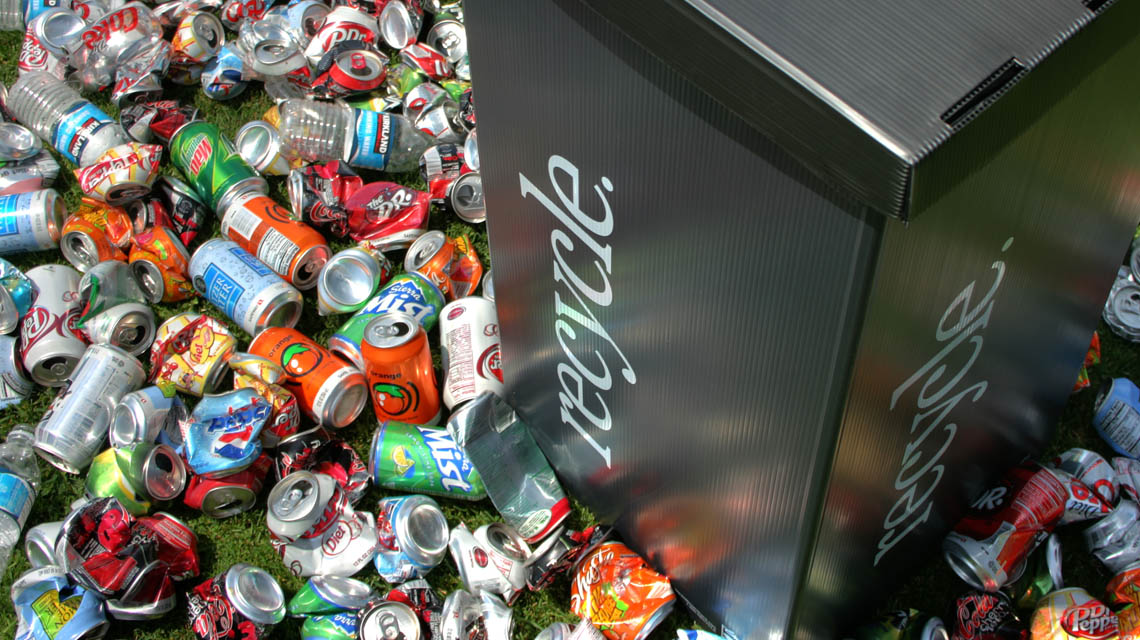OPINION: Recycle locally with USF’s upcoming recycling project

USF plans to implement reverse vending machines on campus by spring 2022, a double effort to recycle and raise money for the pantry. This method of local recycling is much more effective and environmentally friendly than large-scale recycling.
With mass recycling such as public bins, mistakes can be made that result in much of the contents deposited in landfills. USF is partnering with Coca-Cola for this reverse vending machine project, where the recycling will be monitored closely and benefit locals. Communities and other colleges should adopt this strategy to promote sustainability.
Recycling can be one of the easiest ways to lessen environmental impact, with 32% of Americans recycling occasionally, according to a 2019 report from the Environmental Protection Agency.
Recycling is only effective if done properly so contents don’t ultimately end up in a landfill. This can result from contamination, according to Rubicon, a sustainability-focused research company. Contamination occurs when materials are sorted into the wrong recycling bin, or are cleaned improperly.
About 25% of recycled items in the U.S. are too contaminated to be recycled, ending up in the landfill instead, according to the National Waste and Recycling Association.
Recycling bins that don’t separate the materials are an automatic contributor to this issue. Even if the bins are compartmentalized, there’s no guarantee people will correctly sort the items.
USF’s recycling vending machines will accept plastic bottles and aluminum cans, immediately spitting out whatever doesn’t fit the criteria, such as glass bottles. This makes it much more practical and effective than most recycling efforts.
Rejecting materials that won’t sort into proper categories ensures that these items are recycled most effectively.
USF is teaming up with Coca-Cola for these recycling vending machines, so for each aluminum can or plastic bottle, Coca-Cola will donate 5 cents to the on-campus Feed-A-Bull Pantry up to $5,000 per year, according to Auxiliary Services Director Nancy Santiago.
This means, not only will the recycling initiative lessen USF’s environmental footprint, it could also make a huge impact by feeding members of USF’s community.
Other colleges and communities should follow suit with similar projects. If everyone does their part correctly on a local scale, it’ll add up to a better national result.
USF is taking the right step in improving sustainability, and others would do right by following its example. Saving the environment is a bold task, but by joining together as communities, it’s well within reach.






